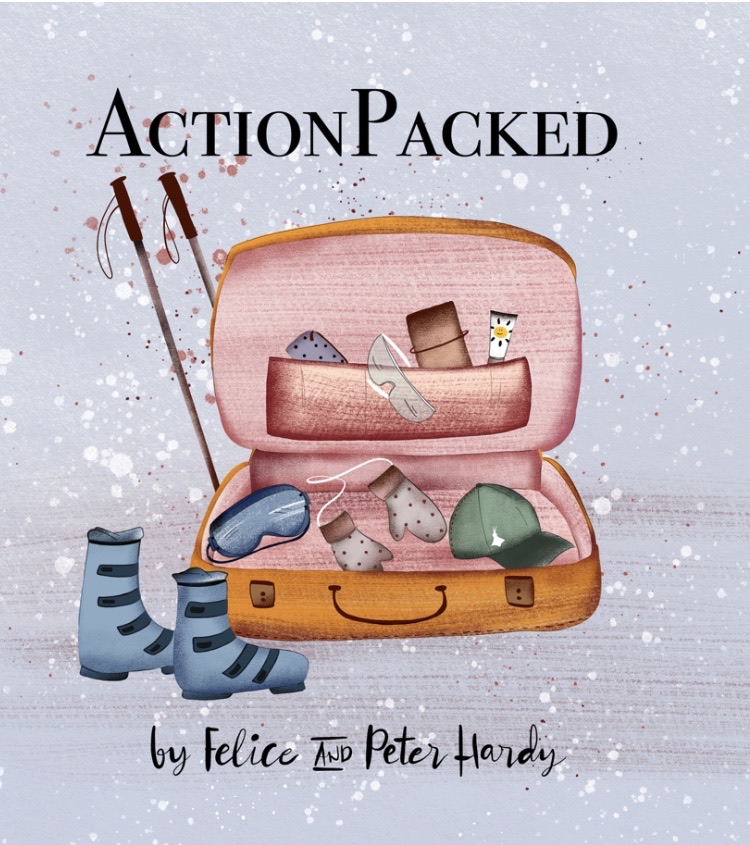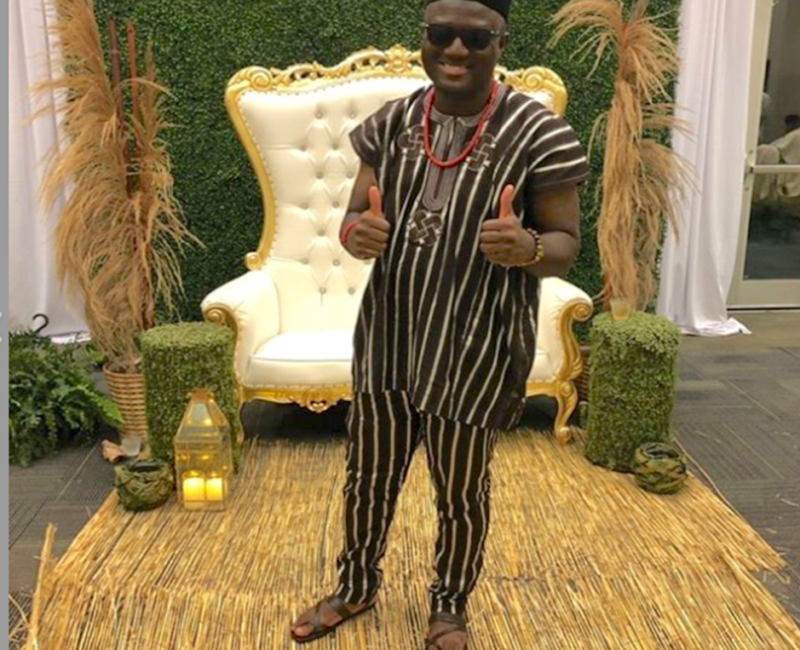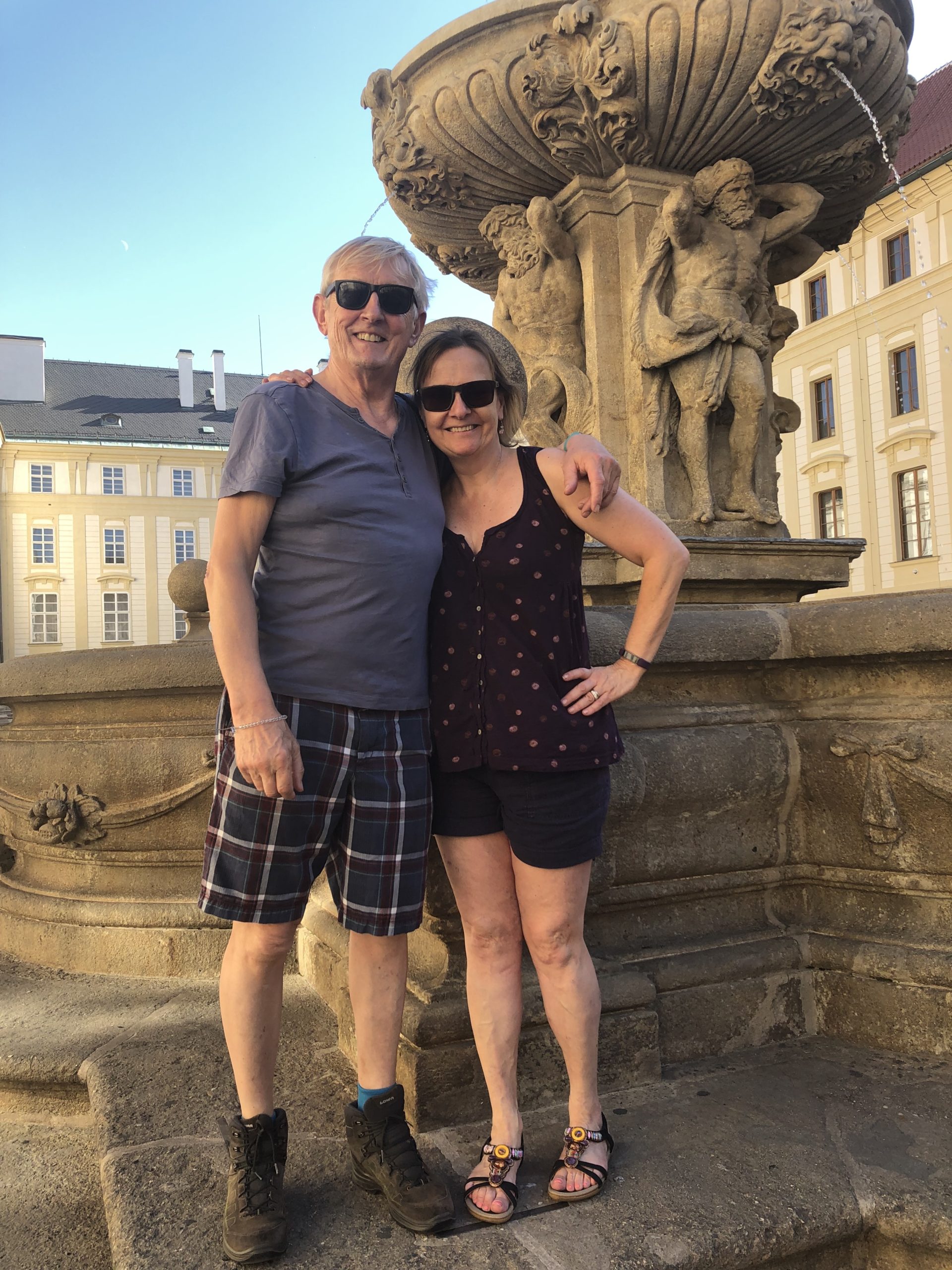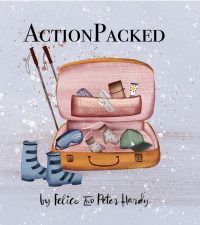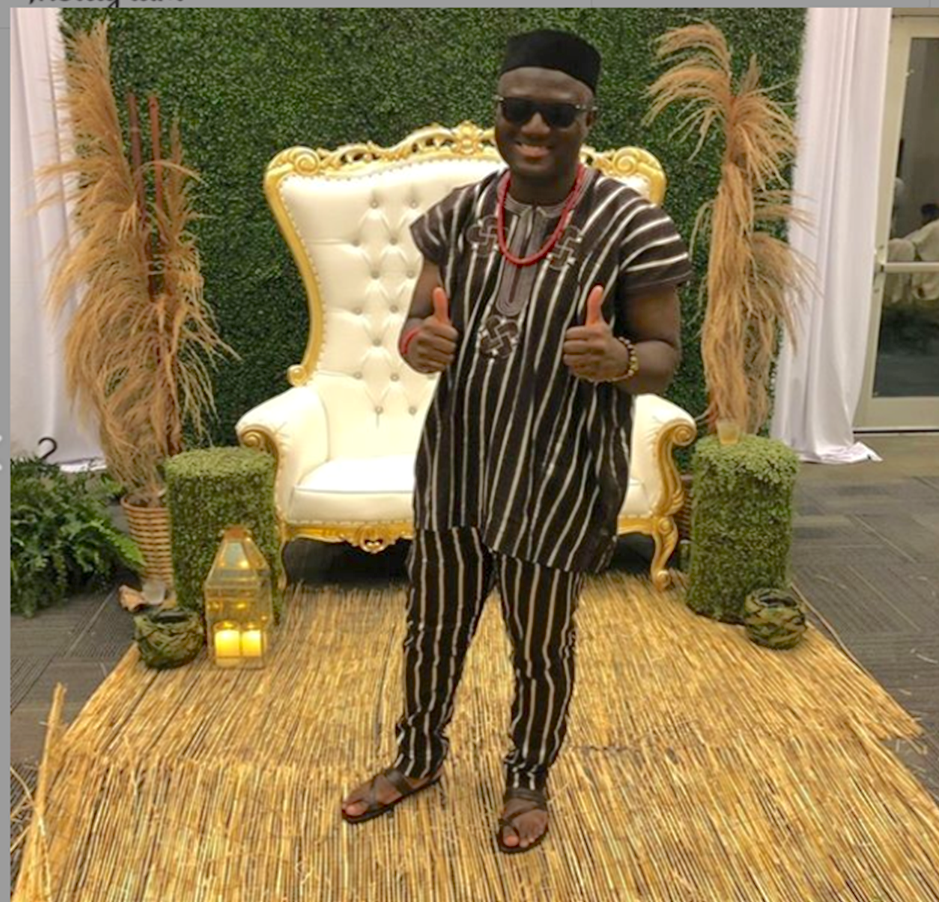
Nosa in traditional dress.
Peter Welcome to ActionPacked, the travel podcast that goes to the best places and meets the most interesting people. So let’s go straight to the action. So this week we’re talking to Nosa, a young Nigerian banker who emigrated to the United States where he immediately launched his own hugely successful culture podcast. So Nosa Iyare, welcome to our travel podcast.
Nosa Thank you so much.
Felice You’re a podcaster yourself, so you know all about this.
Nosa Yes, I’m a podcaster myself. So I record a weekly podcast called Culture Class Podcast, where I get to interact with people from different backgrounds. We met actually because I had you guys on an episode a few weeks ago. So I guess you are returning the favour – thanks for having me.
Felice That’s a pleasure.
Peter Absolutely.
Felice So tell us a little about yourself, because you’re in the USA at the moment, but you weren’t born there were you?
Nosa You know, I wasn’t born in the USA; I’m Nigerian. I was born in south Nigeria, a state called Port Harcourt, which is like a seaside city. My dad was in the military and he met my mom over there and got married and he was deployed there for a little while. But we ended up moving to a whole bunch of places within Nigeria because my dad moved around a lot because of his job. And I spent the first 20-something years of my life in Nigeria and I only moved to the US about three years ago.
Peter So what prompted the move? It was a big step wasn’t it?
Nosa Actually, I like to say school, but school was kind of just like an excuse, to be honest. I had a brother who lived in the US. I had visited him once and I just enjoyed my time there. And I was like, OK, you know what, if I want to move the best excuse to move is to probably go for graduate school. I’ve been working for a while at the time in commercial banking and so I’m like, OK, you know what, let me go to school. I’ll be an easy way to move to another country, kind of like a soft landing. So I did that in, I want to say 2016 or 2017, yeah, I moved to Washington DC, went to school there and finished school and I moved to Colorado.
Peter So why did you choose Colorado, of all places to go to – The Mile High City?
Nosa I mean, that’s a good question. I initially wanted to stay in DC, to be honest, when I went to school in DC. DC is, you know, it’s a small city. A lot of people live in Maryland or Virginia and work in DC and it’s just a corporate environment. A lot of people…if you go to a party or anything after school someone they ask your name, the next thing is: ‘What do you do?’ So everyone’s always networking everyone either works for the government or a government contractor or something.
So I got a job offer out here in Colorado. I was still contemplating what it would be like to live somewhere besides the East Coast because I was kind of like used to the east coast, DC, Pennsylvania, Midwest, Chicago. But my company did a smart thing and flew me out here to have a chat – I had already done like a virtual interview but, you know, it was a second interview/chat. And they wanted me to see the city. And when I came here, I fell in love with it. Colorado is a perfect place to have the best, I would say in my experience, the best work-life balance. So you can go to work Monday to Friday and on the weekends you’re out in the mountains somewhere or kayaking somewhere or biking through the woods.
So when I came here I just felt my life expectancy go up, to be honest. So I was like, oh, this will be a good place to, you know, settle down, maybe start a family or something. So that was what lured me. It was a job offer, but that visit to Colorado made me make up my mind to come here, which is ironic, to be honest, because it took me almost a year before I got to do some of those things I just talked about.
Felice So what sort of things have you done? Have you been hiking and cycling, things like that?
Nosa Yeah, recently. I’m not a really outdoorsy person, to be honest. I’m a bit of a nerd, so I stay indoors a lot of the time, watch documentaries, read books, listen to tons and tons of podcasts – that’s what I do. But when Covid hit, just because we didn’t have the opportunity to go out as often because everyone was working from home, then home became a bore, you know, then I made up my mind. That was like a year after I lived in Colorado. I made up my mind: ‘You know what? Maybe I should try this thing?’
I’ve gone on two hikes so far. I went to Roxborough Park, which is like an hour from where I live. That was pretty interesting because I went on a two-hour hike and I didn’t read the signs before I started the hike. So when I got back to the entrance, I then saw these different signs that said: ‘If you see a mountain lion, this is what you do. If you see a rattlesnake this is what you do. If you come across a bear, this is what you don’t.’ What? So apparently, a lot of people go on hikes.
There’s a dress, a particular type of clothing you are encouraged to wear, you know – long pants, hiking shoes just in case, you know, you’re muddling through the shrubs, a snake tries to bite you. I didn’t know any of that stuff. I just wore my sneakers and shorts. And I know some people apparently also do go on hikes with maybe sticks and clubs and knives just in case they encounter anything. I didn’t know any of that. So that was pretty interesting so I guess I was pretty lucky there. That was my very first hike.
I went on on a smaller trail also just in the middle of Colorado, just off the Cherry Creek Trail. So I did that. And today, I’m actually going to rent a bike. I did have a bike, a bicycle. But because I hadn’t rode it for a while, it’s been outside forever. So it’s starting to rust and all of that, so I’m going to rent a bike, go biking in the woods somewhere.
Felice That sounds fun. We ski a lot. In fact, the times we’ve been to Denver is to go skiing. And is that something you might try in the future, skiing or snowboarding?
Nosa Oh, most definitely. And, you know, that was one of the things that intrigued me, what you guys did, you know, really travelling around the world, skiing all over. It’s something I will definitely try. I mean, the X Games was just here last year, or I think early this year before Covid. So I’m a generally curious person, I guess that’s why I love documentaries and podcasts. So I guess the best way to get me out of the house is to tell me something I haven’t done before. So skiing is on that list. So yeah, I definitely look forward to skiing, scuba diving, all those other stuff.
Peter Have you been to the west coast as well?
Nosa No, not yet. I haven’t been to the west coast. I have a couple of friends out there. Ironically just before Covid my brother and I…not just before Covid…for a while now…I think last year we talked about it over Christmas and a little bit before that…talked about taking a road trip from Chicago to San Francisco. But we haven’t really had the time to do that just yet. But I have a couple of friends living on the west coast, but I haven’t had a chance to go there. I look forward to it.
Felice So what do you think of the climate in Colorado? I mean, it’s very different from Nigeria?
Nosa Yes, it is. I mean, right now, it’s not so different because I guess we’re into the summer months now, so it’s pretty hot. DC is pretty humid during the summer. Colorado’s just very dry. It took me a while, my first few months moving here I drank a lot of water because I guess my lungs were not used to the kind of air that was here in Colorado. And it’s funny because my brother came here last week and he was complaining about the air as well. I thought maybe I’ve gotten used to it because I don’t feel that anymore. So, yeah, it’s kind of dry. It can get pretty cold in the winter, obviously in Colorado, especially in the mountains. Apparently I think there’s some parts of the state that snows more often than not. So people that live on the mountains, in my experience, have more snow for most part of the year. But generally in the metropolitan area like Denver, it can get pretty hot during the summer months. And the winter is pretty cold, like really cold. I think this is the coldest state I’ve lived in so far in the US.
Felice So had you seen snow before you came to the US?
Nosa No, I hadn’t seen snow. So it doesn’t snow in Nigeria. There was a news story when I was about, I want to say eleven, when it snowed for like six minutes in northern Nigeria. So that’s the most we’ve seen. We have something called Harmattan back home, which is kind of like a foggy atmosphere where there’s no visibility, pretty cold, very dry weather, particularly in northern Nigeria. But sometimes we do have hailstorms. So, yeah, we have hail in some parts of the of the south and some parts of the north as well. So it’s just like a whole bunch of ice raining down on you. That’s not particularly snow, but that’s the closest we had come to snow back home in Nigeria.
Felice Because Nigeria is known…I looked this up…it has the largest mangrove forest in Africa. That’s a completely different landscape.
Nosa Yes, that sounds about right. That sounds right. I mean, it’s tropical, I think we’re right there on the equator. But yeah, it’s more like a tropical climate. Some parts of northern Nigeria can get pretty cold. But besides that, you know, it’s usually warm except the Harmattan periods I talked about, earlier in the year, like January to March, where it’s misty cold and low visibility kind of stuff.

Felice Also in Nigeria, the national sport is soccer. Is that something you did when you were there, or did you watch it?
Nosa Yes, soccer is a big thing. I wouldn’t say it’s a national sport because it’s not like official-official, but it’s the most popular sport. Even beyond Nigeria, I want to say most parts of Africa as well, but it’s pretty easy to play – unlike other sports, like hockey or basketball or baseball, that you need some kind of sports equipment or tools to play a sport – like bats and hoops and things. Yes once you just have…it might not even necessarily be a ball, but something round, you just start kicking it around and you’re playing soccer. So obviously some of the greatest players in the Premier League are African. So they inspire us a lot from Kanu in the early ’90s, all the way down to Drogba and Essien who play for Chelsea. So they inspired us a lot. So it’s a really popular sport to play as a kid in high school.
Felice Going back to podcasting, when did you start your podcast?
Nosa I started recording in November 2018, but I think I put on my first episode in December, because I think we recorded about six or seven episode before I started publishing. I had a course at the time, I was in school at the time, so I was in Washington DC. I went to a school in northern DC called American University and I was in the Business School. But I had a friend in the School of Communication and they had a studio. So I’d always been listening to podcasts and DC being the hotbed for international culture so I was interacting with people from different places all over the world and, given my father’s military experience, travelling to different places as well. I was always susceptible to new culture, so I just decided to start a podcast around that. So I’m looking forward – I think I’ll be two years old in November this year. I’m not sure what date, but I’m looking forward to that when I clock 100 episodes in two years.
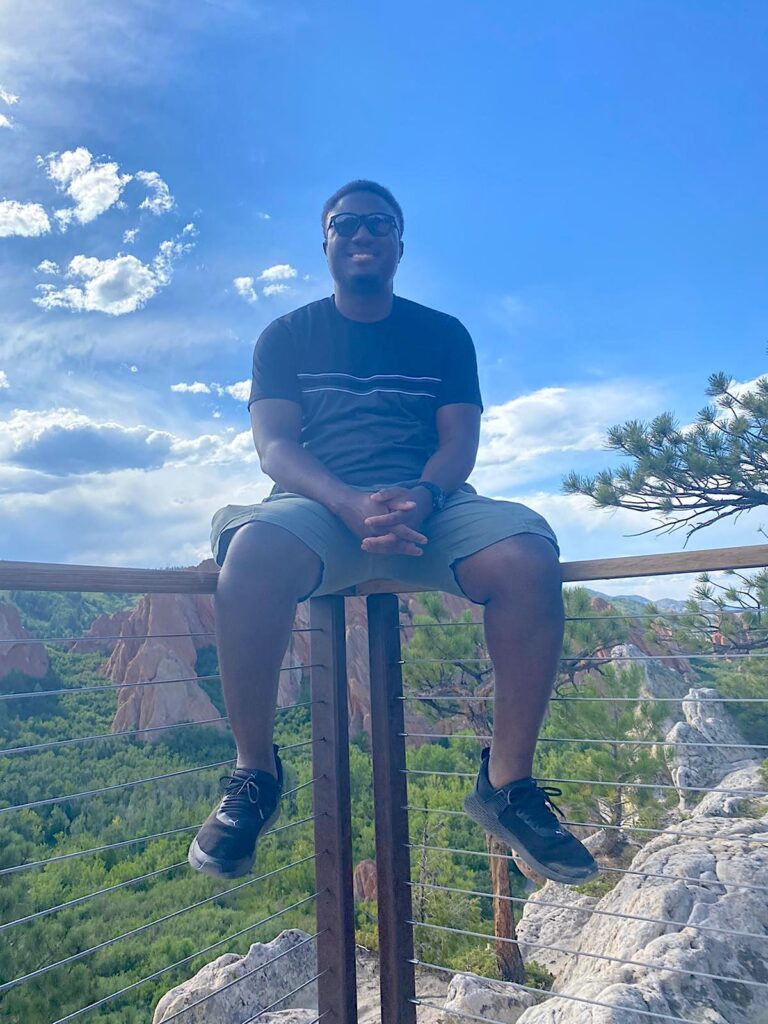
Nosa in Colorado.
Felice Wow, you’ve made over 80 episodes, haven’t you so far?
Nosa Yes, I think it’s like 86 right now. So I should have like 14 more episodes to hit 100. So it’s not been easy, given the fact that I’m having a different guest on every single week. I mean, if it was just me talking to the mic, it might have been a little bit easier. No, we’ve been forging on ahead and thank goodness for how it’s going so far.
Peter How do you find your guests?
Nosa Oh, a variety of ways. So originally when I started, it was just obviously friends who are close to me. I was in school at the time, so it was easier – I’d just reach out to someone on campus, say: ‘I have a podcast,’ or ‘Do you have a friend who’d like to be on the podcast.’ From there I got a lot of referrals, so I used to ask people during the episode: ‘Hey, you’ve been on the podcast now. Do you have someone you know who would like to be on the podcast or you think resonates with our message?’ So I got a lot of referrals that way. But recently, particularly with Covid, I go on a lot of online forums – I guess the way we met was through a Facebook group. So I joined a lot of Facebook groups, you know, interacted with a lot of podcasters. I joined something called the podcast directory, which matches guest to host. And there are a couple of other things out there, but primarily it’s a referral source that has been on my podcast. When they share their episode, their friend will ask them about it. And if you’re interested, they might reach out or I might reach out.
Peter What are the favourite episodes you’ve done?
Nosa Oh, I mean, every episode is pretty unique. It’s pretty interesting for me, particularly because I’m generally curious and just learning something new on every episode just gives me that thrill. So every episode is almost a favourite episode. But one unique episode, particularly for my listeners and I guess for me as well, was I think that like episode 77, I interviewed a guy called Daryl Davis. Daryl Davis is this jazz musician who lives in Maryland and he’s a black man. And what he does is he interviews, he befriends members of the KKK and has been doing that for 20-something, I want to say 30 years, now. And, you know, he reaches out to them, he befriends them, hangs out with them and slowly gets them to see that…he slowly gets them to give up their ways.
I think he has been able to…he doesn’t like to use the word convert, but he’s been able to convince about 200 or so KKK clan members to disrobe and give up the ideology. He didn’t win everybody over, you know. But that was pretty interesting because I think I did that interview during the protests, which are still going on, and it just coincided with that. And there was a lot of reaction. Obviously, some people were not happy, but my point of view is, you know, there are different strategies to win the war. While for a lot of people that’s the Malcolm X approach, there’s the MLK approach, tons of approaches. So this is his approach. And he actually has results, you know, converting 200 people who are now not living their life with hate, just because of what he did. So that was pretty interesting. That was a unique episode, you know, a couple of other episodes also.
Felice That sounds really interesting. Must have been very uncomfortable for him and dangerous, too?
Nosa Yes. I mean, he’s been doing this forever. I would imagine maybe when they first started it was a bit dangerous because he told me about the first year when he met the grand wizard of the Lodge, where I lived. And, you know, that was a pretty unique situation because he had a bodyguard who had a gun. But everything turned out OK and he’s still doing the work. That was kind of like his first comfort.
Peter Where do you go from now? You get to 200 and then you carry on, but you want to keep the same direction or do you want to do something different?
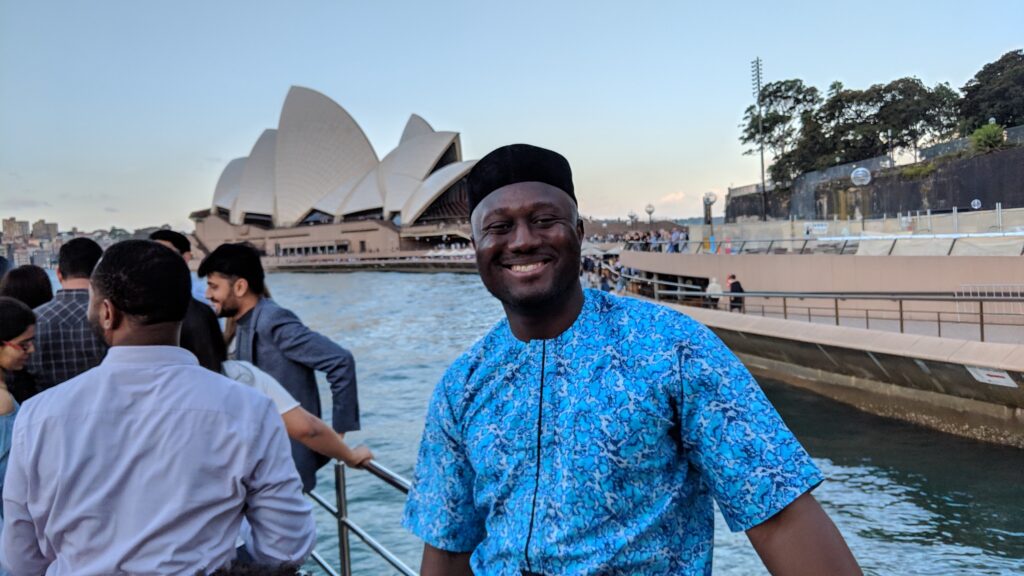
Nosa in Sydney.
Nosa So I have a bunch of plans for the podcast, fingers crossed. I applied to the Google PRX podcast creator programme, which is like a podcast incubator here in the US. This will probably be remote, I think, but they have an office in, I want to say, Boston and Minneapolis. So they partnered with Google like a podcast network here in the US and they have a podcast creative program. So I applied for that. And if I get in I’m required to stop publishing for 12 weeks while they help us rebrand the whole podcast. So that’s my idea.
So regardless of whether I get into that programme or not, after 100 episodes, I’ll take a break for a month or two. I will rebrand the whole podcast. I hopefully want to get a producer that’ll help me in getting better guests, so I focus more on doing the research for the interviews. Hopefully I want to add videos so not just, you know, putting out audio content, but putting videos on YouTube. I have a new website now, so I want to do some more research to follow up. If people need additional content about where the person is from, the country, the culture or whatever it is we’re talking about, posting that. So just make it a richer experience for my listener, you know, taking it up a notch. That’s what I want to do.
Hopefully, after Covid is over, I’m thinking about a festival – bringing people from different cultures together. It’s like share food, music, that kind of thing, locally here in Colorado. And I’m also working on a playlist or a soundtrack or an album, if you will, because I’ve interviewed a few artists from different countries. So, you know, bringing these songs…because the best way to share culture is through music and food…so bringing the songs from different countries and making a playlist or an album out of it. So for people to listen to music from different countries, that’s my plan.
Felice So what keeps you motivated?
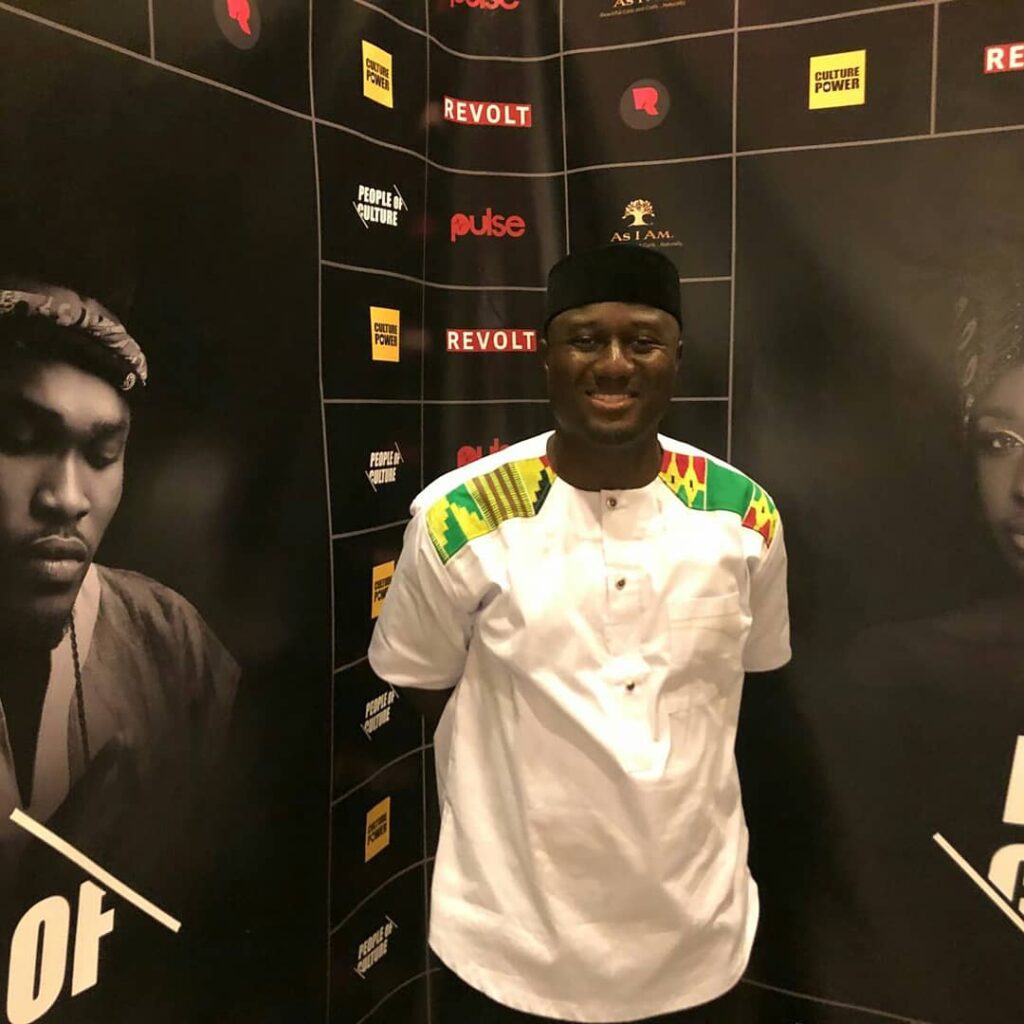
Nosa in traditional dress.
Nosa Good question. I mean, besides my nature, just on one part, generally I can get a little obsessive if I start something I’m really interested in. So whether that’s podcasting or whatever, if it’s something I start – and maybe I blame that on my dad’s military background. The discipline helps, boarding school and all that. That helps. But if it’s something I’m interested in, just passion, if I can use that word because it’s something I’m genuinely curious about because, you know, there are a lot of people who support casts and after…I think it’s like episode five, they have ‘the pod phase’ because, you know, I always say this: I didn’t really start this to be an influencer in the 21st century term of the word.
A lot of people just talk about pop culture, talk about music, movies, and there’s nothing wrong with that if you’re interested. But if you’re not really interested in those subjects, passionate about it, that will be difficult, you’ll start missing episodes, things start to happen. But it’s something that you do, that comes to you naturally, like you guys with skiing, that you’ve done all your lives. It comes naturally to you – it’s the same thing with me and culture. Once I meet someone from a different place, I start a conversation and ask them a bunch of things. I like to travel myself; I like to watch documentaries about other places. And even when I was younger, my dad had all these encyclopaedias about different cultures. So it’s just something that comes naturally for me. So I guess the discipline helps, but the passion also helps as well.
Felice And you told us that we were the first married couple you’d interviewed?
Nosa Correct. You guys were the very first married couple I think I’d interviewed. What episode was that? An episode called The Matchmaker – I can’t remember what episode I think was like 50-something on my podcast – they were engaged, they hadn’t been married yet, but you guys were the very first married couple I interviewed.
Felice So you’re not married yourself?
Nosa No, I’m not married myself. If your listeners want to, you can call 555…I’m just joking. No, I’m single, but yeah, just like the culture thing, you know, whenever I meet people who are married or have a business or are into something that I see myself doing the future, I also like to pick their brain and stuff. So it was pretty interesting having you guys on as well.
Felice So when you were in Nigeria, did you travel around at all? Any other parts of Africa?
Nosa Parts of Africa no, but parts of Nigeria, yes. So Nigeria has 36 states. I want to say we lived in about maybe 20 of those states, so more than half the states in the country, because my dad moved around. There were a lot of times I’d go to boarding school for a term, and when I’m coming back home, I’m coming back to a different house. So he was in the military, he moved to different parts of Africa a lot. He served in something called ECOMOG, which is like the West African military arm, made up of different countries. So they did a lot of peacekeeping missions, especially in the late ’80s and ’90s, when we had a lot of dictatorships in a lot of African countries.
My dad was a helicopter pilot, so he flew soldiers to some of those zones and all of that. But he probably didn’t want to take along his young kids to those kind of volatile countries. So I think it was in Burundi he was and it wasn’t a bunch of countries. Some of them obviously, because of the secrecy in the military, he wasn’t able to share with us. But he moved around a lot. Eventually when I was a little older, I got to go to some places in West Africa. So I’ve been to Ghana, I’ve been to the Ivory Coast and…where else? Ghana, Ivory Coast. And I want to go to Senegal at some point, so we’ll just start from West Africa and slowly make my way to the rest of Africa.
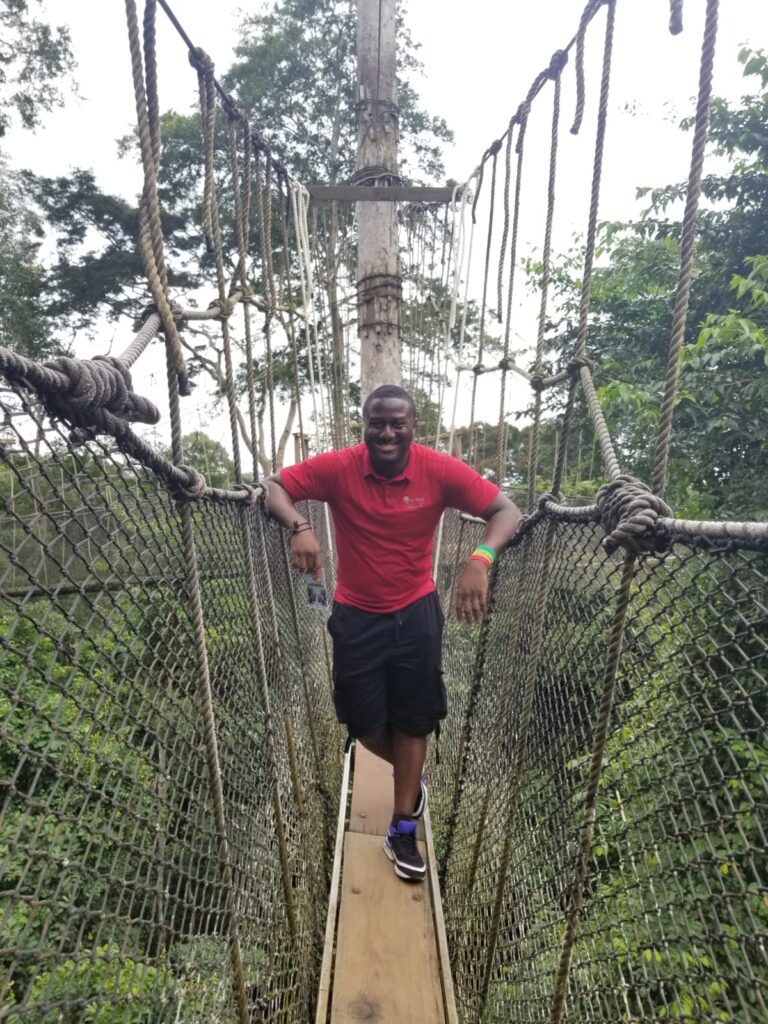
Nosa at the Kakum National Park in Ghana.
Felice So you do go back and visit? Have you got family there in Nigeria?
Nosa Yes, I have some family in Nigeria, my brother’s here. But I haven’t been back since I came here, which is a little over three years ago. I was actually planning on going back for Christmas this year. But, you know, with the Covid situation, I don’t know how possible that whole thing is.
Felice When you’re not working and podcasting, what do you do to relax?
Nosa When I’m not working or podcasting? Like I said, I’m just a generally curious individual; I’m more of an indoor person. It doesn’t take much for me to relax because I do so many things, I juggle so many things. You know, I work, I podcast, I’m working on this new album project and other things. I’m involved with my high school alumni – I was the president of my high school on there for like three years, so I do that. So I do so many things at the same time that when I’m not working what I need to do is just lay down, put on some music. I’ll put on a good documentary and just be still, you know, that’s what does it for me. I don’t really have any hobbies per se because I just need to get my mind off work so that just involves chilling at home, like Netflix and that kind of thing.
Peter You must miss Nigerian food ?
Nosa A little bit. We do get some Nigerian food here. It’s not as authentic as back home, but it is something particularly when I lived in the DC. area, because the DMV area (Washington Metropolitan Area) has a large African population. So a lot of Habesha, a lot of people from East Africa, like Ethiopia, Eritrea, a lot of Ghanaians, a lot of Nigerians live in Maryland as well. So we have some Nigerian restaurants there. There’s hardly any state you go to that doesn’t have an African restaurant that sells Nigerian food. So I try to drive that and grab two or three in the Denver area. I pick up some stuff; I cook myself. So it’s not as authentic, but I have something, which is more than I can ask for.
Felice So what is Nigerian food like? I’ve never eaten it. I mean, can you name some typical dishes?
Nosa Yeah, sure. So Nigerian food in general…so Nigeria is made of up like 300, I want to say 350-something, 370-something different ethnic groups. So they are almost 300-something languages, almost 500 different tribes, 36 states like I mentioned. So in southwestern Nigeria, which is predominantly Yoruba, which is like one of the largest ethnic groups, and I’m sure they’re all over Europe and in London as well. I guess one popular food is something called àmàlà, which is I think is made with, I want to say cassava, but I’m not sure. But it’s something called àmàlà and they eat that with a soup called ewedu – that’s in southwestern Nigeria up north they use rice, ground rice, and they make something called tuwo shinkafa that’s really popular up north. And in the east where Igbo is, up north, is the house or tribe in the east…the Igbo tribe, there’s something called fufu, which is made with cassava. That’s cassava dried up, grind it, make into a paste with something called egusi – that’s really popular as well. So those are the three popular foods, I can say.
But generally any Nigerian you meet anywhere, the easiest thing to bond with, the easiest food to bond over, is something called jollof rice. So it’s rice made in different ways, it’s made with tomato paste with some onions. It’s kind of how the Italians make spaghetti with meatballs, but this is rice, so it’s called jollof rice, so whenever you meet a Nigerian, you say: ‘Hey, can we go to a restaurant or can you run and get some jollof rice?’ And it’s a thing as well. Like there’s a certain kind of jollof rice made in Nigeria and rice made in Ghana. So we always argue on Twitter: ‘Which is better? Ghanaian jollof or Nigerian jollof?’ So, yeah, it’s a pretty interesting conversation – it keeps things exciting.
Felice So if people want to find your website and your podcast?
Nosa You can go to our website, CultureClassPodcast.com. If you go there, you can see all our information. We’re on all podcast platforms: Apple Podcasts, Stitcher, Spotify, wherever your podcast. You can also follow us on social media – it’s Cultureclasspodcast on Instagram, Cultural Class Pod on Twitter, Culture Class Podcast on Facebook. And if you want to follow me personally, I use my real names on my social media…so it’s Nosa Iyare on Facebook and Instagram as well.
Felice That’s all for now. If you’ve enjoyed the show, please share this episode with at least one other person! Do also subscribe on Spotify, i-Tunes, Stitcher, or any of the many podcast providers – where you can give us a rating. You can also find us on Instagram, Facebook and Twitter. Stay safe and we’ll see you next week.
© ActionPacked Travel

- Join over a hundred thousand podcasters already using Buzzsprout to get their message out to the world.
- Following the link lets Buzzsprout know we sent you, gets you a $20 Amazon gift card if you sign up for a paid plan, and helps support our show.
